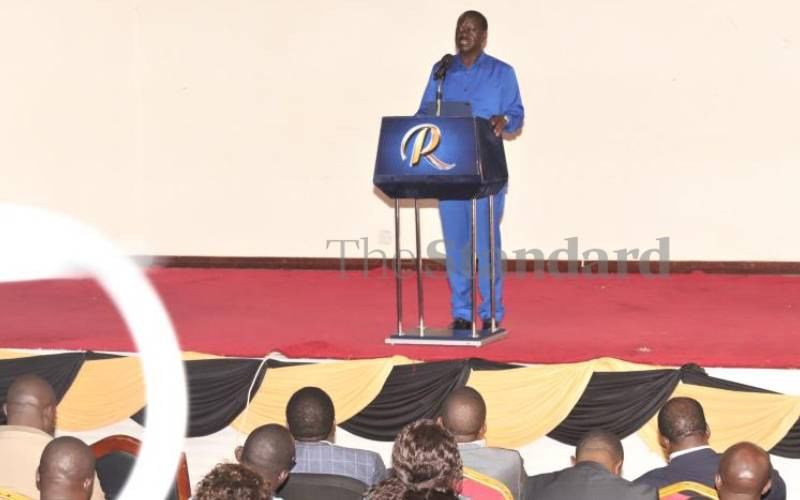×
The Standard e-Paper
Fearless, Trusted News

Azimio la Umoja One Kenya leaders Raila Odinga and Martha Karua went back to Ufungamano House this week, a place they used to frequent from the late 1990s as they joined civil society and religious groups in the fight for constitutional reforms.
Those in the group that pushed for reforms in the 1990s and 2000 were the late President Mwai Kibaki, the Vice President Kijana Wamalwa, current Siaya Governor James Orengo and former Kitui Governor Charity Ngilu.